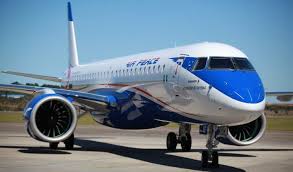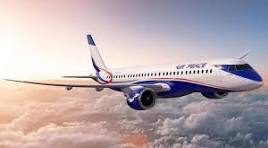
The Implications of Nigeria Losing Its USA FAA Category One Rating: A Focus on Air Peace Airlines
While the minister and his team are making commendable efforts, if these initiatives cannot prevent significant setbacks like the USA FAA Category One loss, there’s more cause for concern than celebration.
The aviation industry in Nigeria has faced many challenges over the years, from dwindling numbers of operating aircraft to a significant reduction in the purchasing power of the average Nigerian. However, recent developments have added a new layer of complexity to the challenges already facing the sector. The Federal Aviation Administration (FAA) of the United States has downgraded Nigeria’s aviation safety rating, stripping the country of its coveted USA FAA Category status. This development has serious implications, especially for airlines like Air Peace, which aim to expand their international operations.

Historical Context: The Glory Days of 2010
In 2010, Nigeria celebrated a major milestone when it secured the USA FAA Category one status under the leadership of Harold Demuren, then Director-General of the Nigerian Civil Aviation Authority (NCAA). This achievement was a testament to Nigeria’s commitment to meeting international aviation safety standards, allowing Nigerian airlines to operate direct flights to the United States and expand their international reach.
Arik Air was the first beneficiary of this status, launching direct flights from Lagos to New York and putting Nigeria on the map as a serious player in global aviation. The achievement was not just a win for Arik Air but a significant boost for the country’s aviation reputation on the world stage.
The Current Scenario: A Reversal of Fortunes
The loss of the Category One rating signifies a step backward for Nigeria’s aviation industry. This downgrade means that Nigerian airlines will no longer be able to initiate new services to the United States or expand existing ones. The impact is particularly concerning for Air Peace Airlines, which has been aggressively expanding its international operations, including routes to London, Johannesburg, and Dubai. The airline’s plans to enter the U.S. market, which could have been a lucrative venture, are now on hold indefinitely.
Financial Repercussions: Higher Insurance Premiums and Operational Costs
One of the most immediate consequences of losing the FAA Category One status is the financial burden it places on Nigerian airlines. With the downgrade, airlines like Air Peace may face higher insurance premiums due to the perceived increase in operational risks. Insurers often view airlines from Category Two countries as having higher risks, which leads to more expensive coverage. This increase in operational costs will likely be passed on to passengers in the form of higher ticket prices, further straining the already reduced purchasing power of Nigerian travelers.
Additionally, the downgrade may lead to a decline in passenger confidence, with travelers opting for airlines from Category One countries, which are perceived as safer. This shift could result in a significant loss of revenue for Nigerian airlines, further exacerbating the financial challenges they already face.
Operational and Regulatory Challenges
The loss of the Category One rating also means increased scrutiny from international aviation authorities. Nigerian airlines will likely be subject to more rigorous inspections and audits, both at home and abroad. For Air Peace, this could mean more frequent and stringent checks on their operations, particularly on their Nigeria-UK route, where European regulators may impose additional restrictions or inspections.
Furthermore, the Nigerian Civil Aviation Authority (NCAA) will be under immense pressure to address the shortcomings identified by the FAA. This could involve substantial reforms, including investments in infrastructure, training, and safety protocols. The road to regaining Category One status is a long and arduous one, requiring comprehensive reforms that may take years to implement.
Broader Implications: Challenges in Bilateral Agreements and International Relations
The downgrade also has broader implications for Nigeria’s aviation sector, particularly in terms of Bilateral Air Service Agreements (BASAs). These agreements, which govern the terms of air travel between countries, often consider FAA ratings as a benchmark for safety and regulatory compliance. Losing Category One status could complicate existing or future BASAs with other countries, limiting the ability of Nigerian airlines to expand their international operations.
Moreover, other regions or countries may impose their restrictions or conduct additional checks on airlines from Nigeria. This could further isolate the country’s aviation sector and complicate international operations, making it even more challenging for airlines like Air Peace to compete on the global stage.
The Way Forward: A Call for Comprehensive Reforms
Regaining the FAA’s Category One status is essential for the future growth and sustainability of Nigeria’s aviation industry. This will require a concerted effort from all stakeholders, including the government, regulatory bodies, and airlines. Investments in safety, infrastructure, and human resources are critical, as is a renewed commitment to meeting international aviation standards.
For airlines like Air Peace, the loss of Category One status is a significant setback, but it also presents an opportunity to reassess and strengthen their operations. By focusing on safety, reliability, and customer service, Nigerian airlines can rebuild their reputation and regain the trust of international regulators and passengers alike.
Conclusion
The loss of the USA FAA Category One rating is a wake-up call for Nigeria’s aviation industry. The implications are far-reaching, affecting everything from financial stability to international relations. However, with the right reforms and a renewed commitment to excellence, Nigeria can reclaim its place on the global aviation stage and ensure a brighter future for its airlines and passengers.






0 Comments